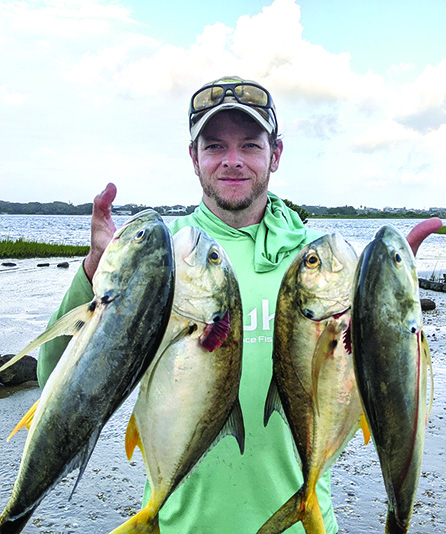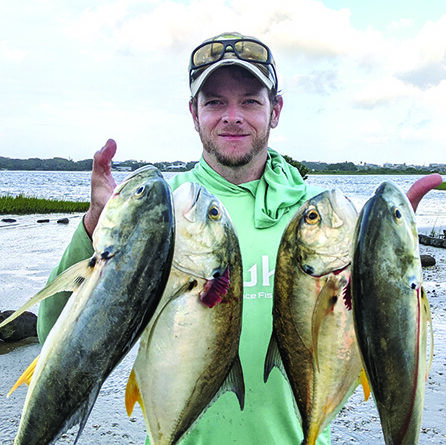New book shares insights on the salmon fishery, impact on residents and businesses

by Richard Lamb–Advance Editor
A new book takes a look at the salmon fishery boom in Lake Huron, specifically around the waters off the shore of Rogers City. Carson Prichard’s book “The Salmon Capital of Michigan, the Rise and Fall of a Great Lakes Fishery,” paints a picture of what it was like during the peak salmon fishing days of the 1990s. The author will do a presentation at the Rogers Theater May 2 in a book launching event sponsored by the Presque Isle District Library.
Prichard, who has a doctorate in Earth and ecosystem science from Central Michigan University, interviewed 19 local and regional people to present the story in an oral history format. Most of those interviews were done in person during the period of March-June 2021. Those interviewed included Thomas Allum, John Bruning, Bruce Grant, Joe Hefele, Mary Ann Heidemann, Matt Hollabaugh, Jim Johnson, Rob Kortman, Frank Krist, Scott McLennan, Dave Nadolsky, Mandy Partyka, Ken Partyka, Mike Peltz, Ken Rasche, Ed Roseman, Dave Smrchek, Jay Warwick and Ivan Wirgau.
“I have been a salmon and steelhead angler since I was a teenager. The passion that I developed led me to pursue an education in fisheries science. I found that in graduate school, among other students interested in becoming fisheries biologists, a surprising few were hardcore anglers like myself. And so, when I became aware of the salmon fishery crash that happened in Lake Huron, I wondered what that experience was like for the people that experienced it, and also what that might mean for the Lake Michigan fishery that I was really attached to. It seemed like a similar crash might be imminent there,” Prichard said.
In his introduction chapter, Prichard said he expected to hear tales of sadness and despair, or perhaps resentment and regret. But he quickly learned residents had a different view of the period.
“The main thing that surprised me—and it came across from the very first few interviews—was that the community did not act as though they experienced something negative, even though salmon fishing took a big downturn. Rather, the stories that were shared with me were much more positive and emphasized the aspects of the buildup and heyday of the fishery that were exciting and fun to have been a part of,” Prichard said.
“I felt a relatively high sense of community pride and local civic involvement from the people that I interviewed. I also felt that the perception of or relationship to the natural world was pretty high among the people I interviewed. They all related to the Lake Huron that they saw every day, as well as other aspects of the outdoors that seem to be more integrated with the people of Rogers City than the average person elsewhere.”
The book gives perspective on the history of the fishery, from the introduction of the predatory game fish in the 1960s that helped eradicate the nuisance of alewives to stocking of salmon in Swan River through the biggest years of the salmon tournament and finishing up to the present. Those interviewed bring plenty of local color to the story, telling their first-hand experiences. The long quotations give those interviewed a good chance to say many things they know about the fishery, how the popularity affected the town and how they reacted to it.
(The complete story is published in the April 25, 2024 edition of the Presque Isle County Advance/Onaway Outlook)

